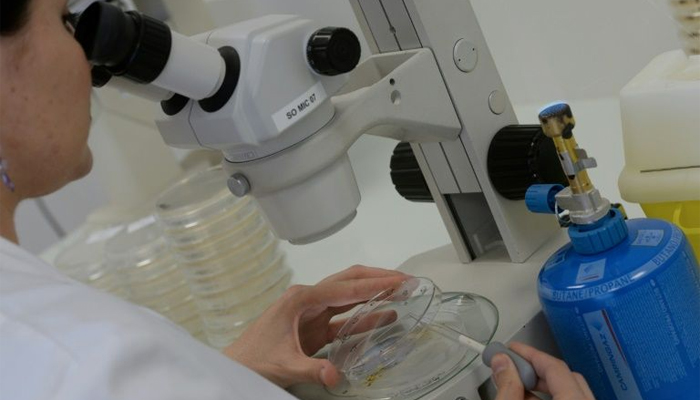'Good' gut bacteria may solve Crohn's disease: study

MIAMI: Fixing the adjust of gut microscopic organisms by presenting a particular sort of "good" bug could help treat Crohn's malady, an excruciating, fiery entrail condition that influences millions around the world, specialists said Wednesday.
Manifestations of Crohn's sickness incorporate regular the runs, fever, cramping, exhaustion, rectal dying, and unexplained weight reduction.
The reason is obscure, and there is no cure. A few patients look for surgery or utilize solution or supplements to facilitate the indications, which can show up aimlessly.
The report in the diary Science Translational Medicine calls for "wiping out a huge part of the microorganisms in the gut microbiome," with the assistance of anti-microbials.
At that point, microscopic organisms that do not have a destructive protein known as urease, is brought over into the gut with the goal that indications can progress.
So far examinations on mice and few people have indicated guarantee in this approach, however more work is required, ponder creators advised.
"Since it's a solitary compound that is engaged with this procedure, it may be a targetable arrangement," said senior creator, Gary Wu, relate boss for look into in the division of Gastroenterology at the Perelman School of Medicine at the University of Pennsylvania.
"The thought would be that we could 'build' the organization of the microbiota somehow that does not have this specific one."
Specialists investigated feces tests from 90 kids with Crohn's ailment and contrasted them with 26 solid youngsters.
They found a plenitude of Proteobacteria in Crohn's patients.
This "terrible" proteobacterium harbors the urease catalyst, which changes over urea into smelling salts, and powers the intestinal irregularity in Crohn's ailment, scientists said.
So they swung to lab mice to search for approaches to battle it.
Past research has demonstrated that giving mice the anti-microbials vancomycin and neomycin, alongside an intestinal cleansing specialist utilized before a colonoscopy "essentially lessened the bacterial load enough to make an open door for a recently acquainted bacterial group with set up themselves," said the report.
So specialists attempted this gut-cleansing methodology in mice, and afterward presented a solitary bacterial animal categories, Escherichia coli.
On the off chance that the E. coli was negative for the protein urease, the mice's gut wellbeing made strides.
On the off chance that the E. coli contained urease, mice experienced declining intestinal aggravation and colitis.
Up until this point, scientists announced that five human subjects additionally experienced the anti-microbial and colonoscopy-prepare, and saw their intestinal bacterial load lessened 100,000-overlay.
This proposes it "may be conceivable to build the arrangement of the gut microbiota in patients with incendiary entrail illness," said the examination.
Another examination by Penn analysts in participation with the Children's Hospital of Philadelphia is in progress to additionally analyze this approach.
"Since we can viably diminish bacterial load in people it might now be conceivable to design the microbiota into an alternate setup in a way like what we have accomplished in mice," Wu said.
"Despite the fact that we're nearer now, there is still more work to be finished."

No comments